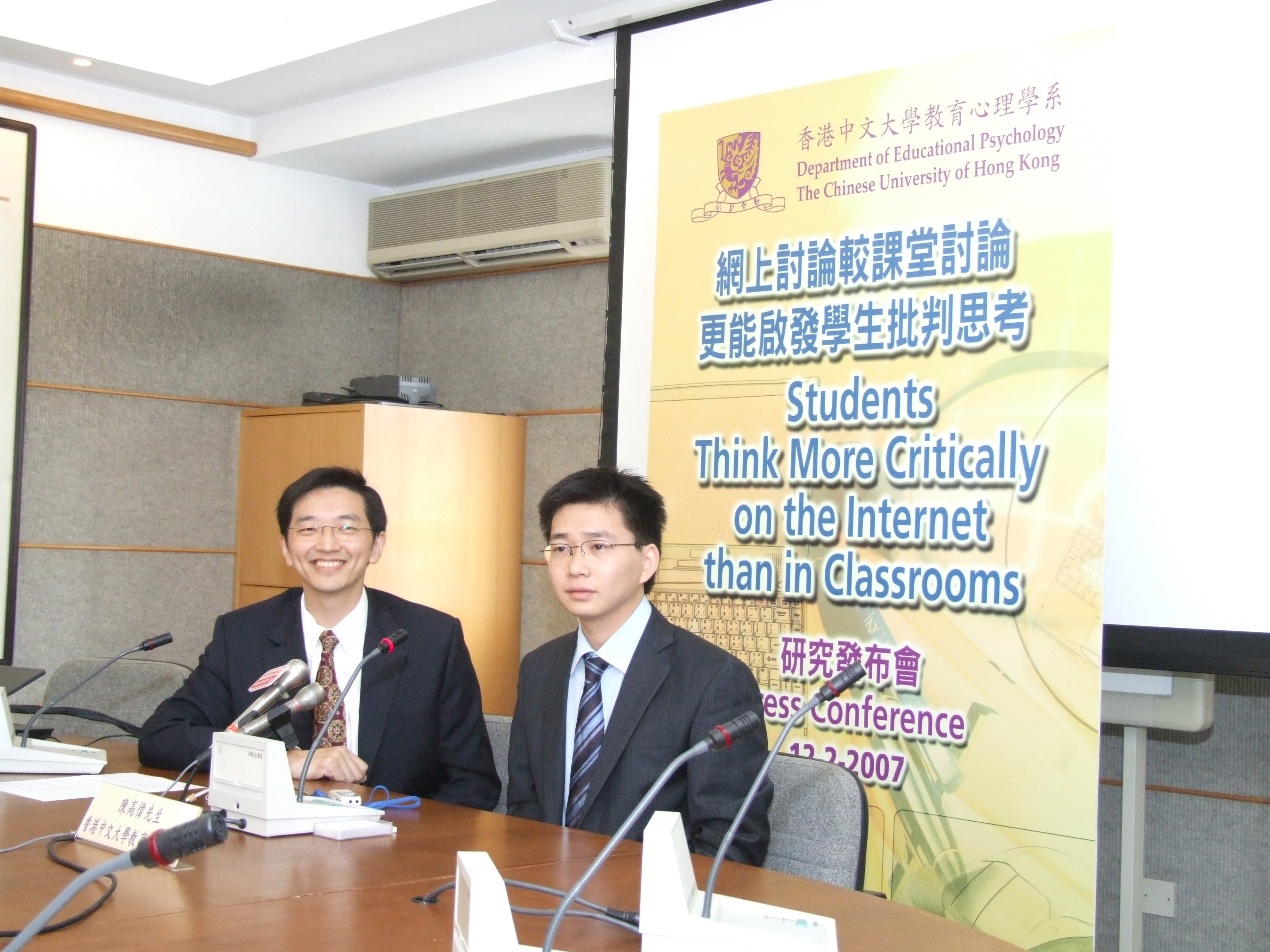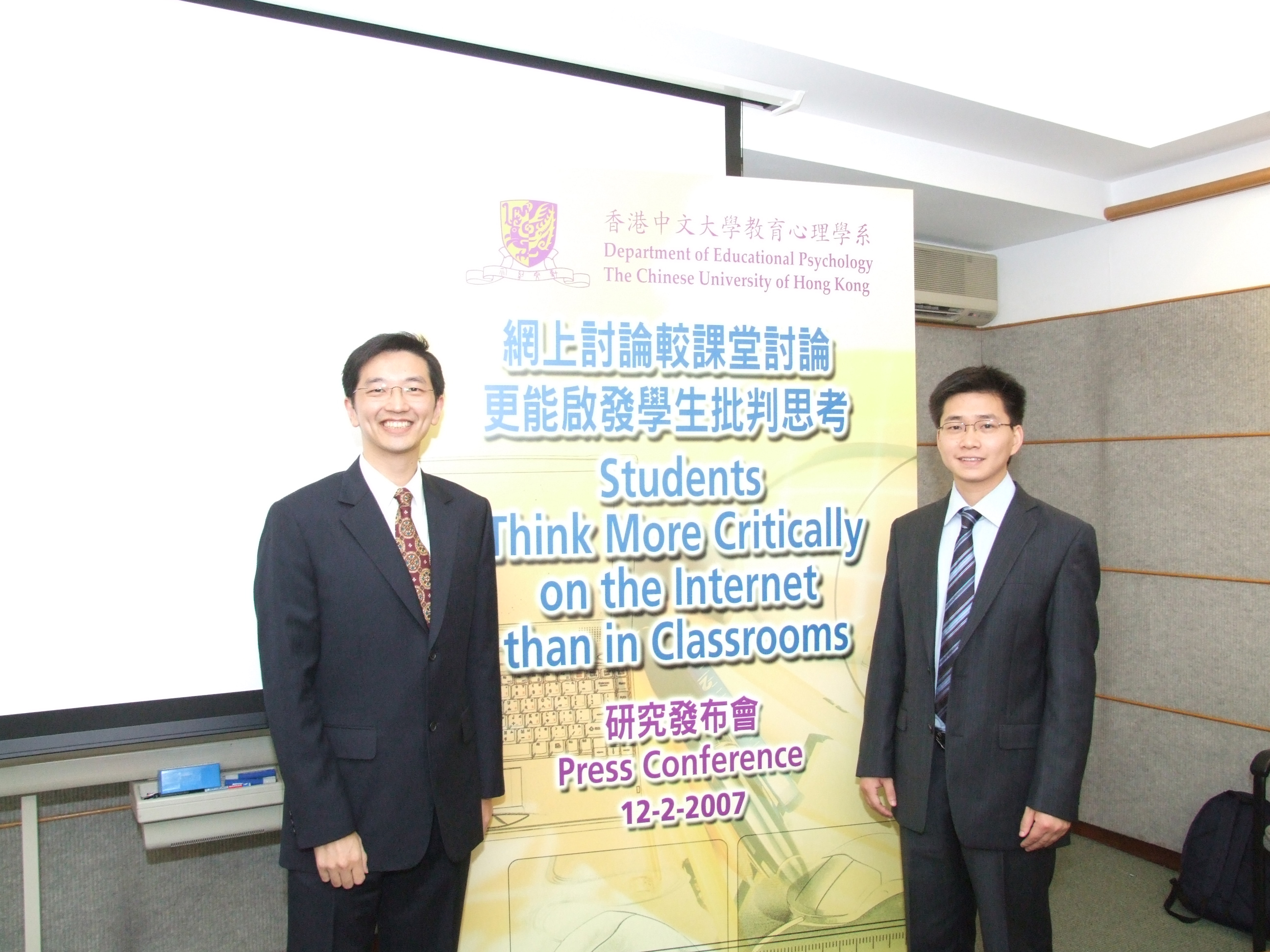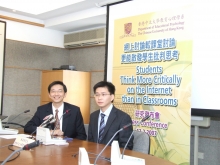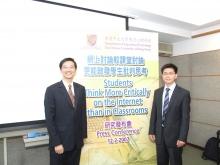News Centre
CUHK Study: Students think more critically on internet than in classrooms
Do students behave differently during internet discussions than during classroom discussions? Yes! During internet discussions, students showed more critical thinking, and they were less concerned about public self-image (face-saving) and status than in classrooms, according to a recent study published in the best international journal in the field, Computers and Education. These results imply that students can use the internet productively through critical thinking during controversial discussions.
First statistical study modeling the flow of internet discussions
Mr. Chen Gaowei and Professor Chiu Ming Ming of the Department of Educational Psychology of CUHK conducted the first statistical study modeling the flow of students’ internet discussions. In their study, 47 university students posted 131 messages on a free, un-moderated electronic bulletin board to discuss 7 mathematics topics. They analyzed these messages using a new statistical method, Dynamic Multilevel Analysis (DMA) invented by Prof. Chiu and Dr. Lawrence Khoo in 2005.
More critical thinking, fewer face-saving concerns, and more equality on internet
In this study, students showed critical thinking in 40% of their internet messages. In traditional classroom discussions, students showed critical thinking rarely exceeded 10% of their turns of talk in any lesson (and was often far less), according to Prof. Chiu’s studies of HK classes. Disagreements on the internet were less face-threatening and did not shut down conversations, unlike classroom discussions. Students who disagreed during internet discussions elicited more responses from other students. Moreover, in 73% of their disagreements, students added new ideas which enhanced the internet discussion.
Meanwhile, students rarely defer to higher status students during internet discussions, suggesting that students have more equal status during internet discussions. In contrast, students often defer to higher status students during classroom discussions.
Recommendations for parents and teachers
Based on these results, parents and teachers might promote students’ critical thinking by encouraging them to engage in internet discussions of controversial academic topics. Specifically, Mr. Chen and Prof. Chiu recommend that:
– Parents encourage their children to join internet discussions on content-focused electronic bulletin boards rather than less productive internet activities.
– Parents and teachers monitor their children's and students’ internet use to mitigate social conflicts on the internet.
– Teachers use the internet for discussion of controversial topics (questions with contested answers).



